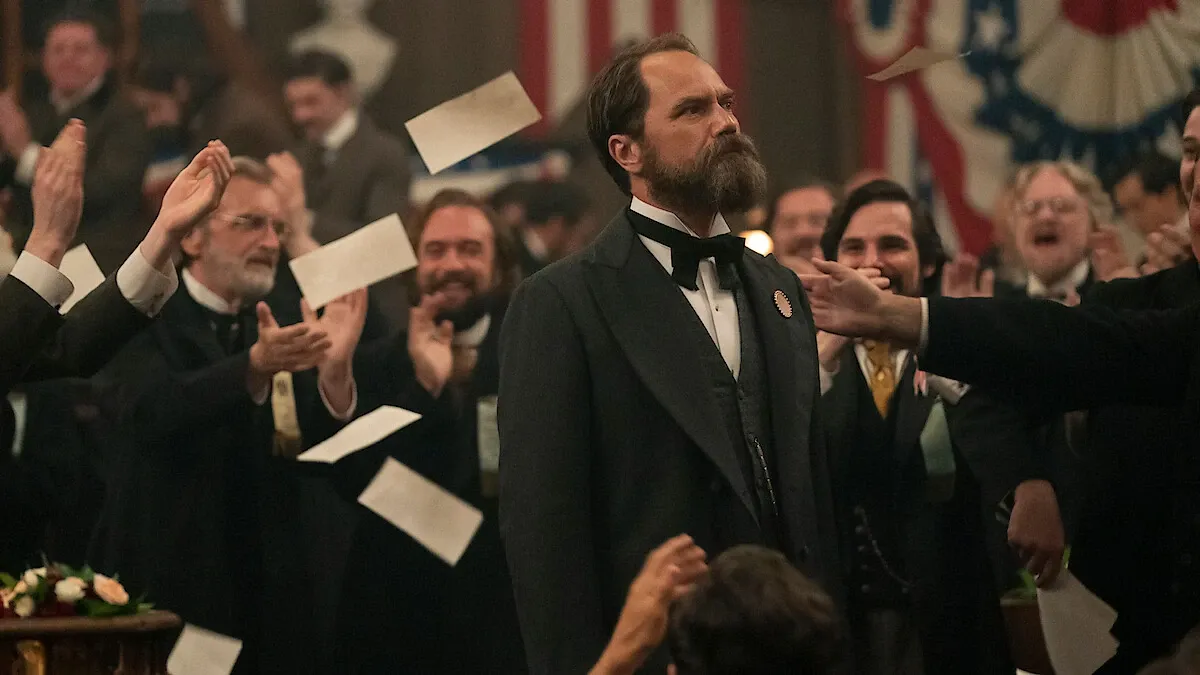★★★★ | I’m walkin’ here!
New York is one of the most fascinating cities in the world. It’s an unwieldy behemoth, ever-changing, and never as you’d picture it, even after a century of pop-culture iconography painting it in a particular light. It’s loud, hard, unfriendly, confusing, hostile, and smelly. But it’s also exciting and alive with a vibrant and diverse community, unlike anywhere else.
And at the heart of it all is Fran Lebowitz.
If you haven’t heard of Lebowitz, it’s not unusual. I remember her from high school, where her acerbic social commentary in books like Metropolitan Life and The Fran Lebowitz Reader had the impact of a literary sledgehammer on me. After the 90s, she all but disappeared from the publishing industry due to her decades-long writer’s block. Luckily, thanks to parts in LAW & ORDER and an endless stream of public speaking engagements, Lebowitz has stayed afloat. But for a whole generation, she remains something of an unknown figure, referenced only in the sidelines.
Now, another New Yorker who, like Lebowitz, has woven the city’s cultural fabric just as much as the city theirs, is back with a new documentary series about the famously opinionated orator. That someone is Martin Scorsese, who previously directed the Lebowitz portrait PUBLIC SPEAKING. His infatuation with her is palpable and infectious. Especially as he frames her as a Godzilla-esque figure, towering above a model New York.
PRETEND IT’S A CITY isn’t so much a documentary as it is a collection of ruminations, conversations, and witticisms about life in New York. Told in a way that only someone who has lived their entire life there can.
The topics are plentiful. Whether they’re to do with living, books, film, sports, marriage, love, or just life in general, Lebowitz is never at a loss for things to say. Talking to her is akin to a conversational Sisyphean task, except the boulder never rolls downhill.
“The anger is I have no power, but I’m filled with opinions,” Lebowitz begins. She isn’t lying. There isn’t a single topic in the four hours we spend together that she can’t offer a take on. It doesn’t matter that Lebowitz doesn’t play sports, or even like them; she’ll talk circles around you about the politics of Muhammad Ali’s fights. Especially the contradiction that cock-fighting is illegal, human fighting is celebrated.
Lebowitz is an excellent orator. She’s consistently entertaining, even, or especially when she’s infuriating. Her observations drip with hyperbole and surrealism, yet they feel more real for their inclusion. Everything is always a million times as bad, or it happened literally seconds ago. Lebowitz is always the only person in New York who hasn’t done something or not susceptible to the hype. It’s all unhinged from reality in a charming if unreliable way.
Her stories are mythic and operatic, and she even accepts that New York itself is like that. Scorsese leans into it even further. He lets Lebowitz flow from one anecdote to the next, weaving a tapestry of a single conversation recorded over a long period of time. It doesn’t matter to either of them how real these stories are, only how true the emotions they evoke end up.
One minute, they’ll discuss the way disgraced wax figure Rudy Guilliani ran the city into the ground with his racist and fascist lawmaking. The next, it’s how a local art center one day collapsed. Superficially, neither of these things connect. But the emotional logic is clear. New York is complex and often poorly maintained. It’s a living organism that’s seen more than most places.
Eventually, it all circles back to the city itself – and the odd love affair its inhabitants have with it. “Why move to New York?” Scorsese asks. “Because it’s there,” Lebowitz retorts. It’s a simple answer that doesn’t make much sense, unless, she argues, you’ve lived in New York.
Racing to make a point, Lebowitz gallops from one topic to another so fast, it’s up to the audience to keep up. Scorsese, for his part, doesn’t editorialize or glamorize his subject. Even when Lebowitz is full of shit, his camera is compassionately fixed on her. For Scorsese, and by extension, us, Lebowitz is the city just as much as the city is her. And Scorsese will always tell stories of New York.
Just as you’ll feel frustrated by the snobbery, Lebowitz disarms you by acknowledging her privilege and nonsense in a way you’d least expect. You don’t have to agree with her, and it’s uncertain how much of this is an act, but it’s an entertaining portrait nonetheless.
Lebowitz is well aware of the glasshouse she presides in, but she’s got this bucket of stones, and she’ll be damned if she doesn’t use them.












